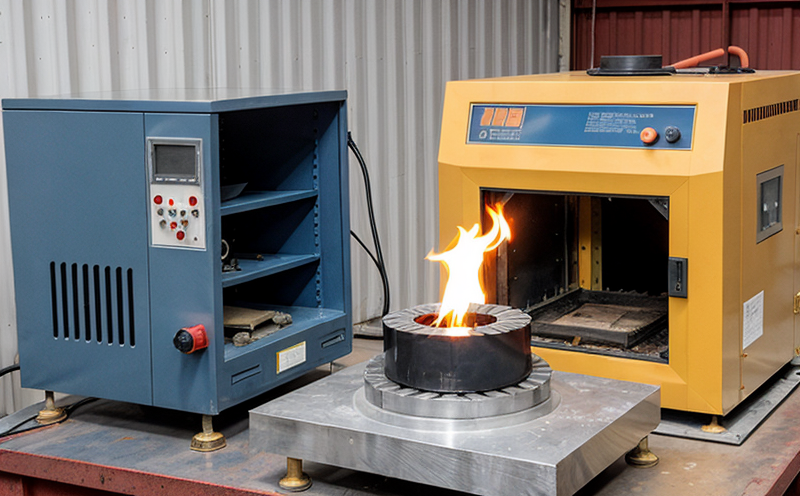Thermal fatigue testing of materials
The Crucial Role of Thermal Fatigue Testing in Ensuring Material Reliability
In the world of materials science and engineering, there are numerous factors that can affect the performance and lifespan of materials used in various applications. One critical aspect that often gets overlooked is thermal fatigue testing a laboratory service provided by Eurolab to evaluate the materials ability to withstand repeated temperature fluctuations without compromising its integrity.
Thermal fatigue testing of materials is an essential tool for businesses seeking to ensure the reliability, safety, and efficiency of their products or components. In this article, we will delve into the world of thermal fatigue testing, highlighting its significance, advantages, and benefits for organizations across various industries.
What is Thermal Fatigue Testing?
Thermal fatigue testing involves subjecting a material to repeated cycles of heating and cooling, simulating real-world conditions that can cause materials to degrade or fail. This laboratory test helps predict how a material will perform under thermal stress, including expansion and contraction, temperature gradients, and other environmental factors.
Eurolabs thermal fatigue testing services are designed to replicate various scenarios, such as
Cyclic loading (repeated heating and cooling)
Static loading (constant temperatures)
Thermal shock (sudden changes in temperature)
These simulations enable our experts to analyze the materials response to thermal stresses, determining its susceptibility to failure or degradation.
Why is Thermal Fatigue Testing Essential for Businesses?
In todays fast-paced industrial landscape, companies must ensure their materials and products meet stringent performance standards. Thermal fatigue testing provides a crucial safeguard against
Material failure Prevent costly downtime, damage, and potential safety hazards caused by premature material failure.
Quality control Ensure compliance with industry regulations and standards for your specific application or market.
Design optimization Identify areas for improvement in product design, reducing the risk of thermal-related failures.
Competitive edge Stay ahead of competitors by using Eurolabs comprehensive testing services to validate your materials performance.
Advantages of Using Thermal Fatigue Testing
Here are some key benefits of incorporating thermal fatigue testing into your material evaluation and development process
Improved product reliability
Enhanced lifespan and reduced maintenance costs
Increased customer satisfaction through reliable products
Minimized downtime and operational losses
Enhanced material selection
Accurate identification of suitable materials for specific applications
Reduced risk of material failure or degradation
Optimized resource allocation with informed material choices
Compliance with regulations
Meeting industry standards and regulatory requirements
Avoiding costly rework or recall due to non-compliance
Demonstrating commitment to quality and safety
Cost savings
Reduced costs associated with repairing or replacing failed materials
Minimized waste and environmental impact through informed material selection
Improved supply chain efficiency through optimized material usage
QA Section
To address common questions and concerns, weve compiled a comprehensive QA section
Q What types of materials can be tested using thermal fatigue testing?
A Eurolabs services cover a wide range of materials, including metals (alloys, steels, titanium), polymers (plastics, composites), ceramics, and more.
Q How does thermal fatigue testing differ from other laboratory tests?
A Thermal fatigue testing is unique in its ability to simulate real-world temperature fluctuations and cyclic loading conditions, making it an essential tool for evaluating material performance under thermal stress.
Q What are the typical test parameters for thermal fatigue testing?
A Parameters may include temperature ranges (from -150C to 1000C), cycle frequency (from a few cycles per minute to thousands of cycles), and load types (static, cyclic, or shock).
Q How long does thermal fatigue testing typically take?
A Test duration varies depending on the specific requirements and material characteristics. Our team will work closely with you to determine the most effective testing schedule.
Conclusion
Thermal fatigue testing is a critical component of any comprehensive material evaluation process. By understanding the importance of this laboratory service, businesses can minimize the risk of material failure, optimize product design, and ensure compliance with industry regulations.
Eurolabs experienced team is dedicated to providing you with accurate and reliable thermal fatigue testing results. Contact us today to learn more about how our services can benefit your organization.
Additional Resources
To further explore the world of thermal fatigue testing and Eurolabs services, we recommend
Downloading our free e-book on thermal fatigue testing
Exploring our case studies and testimonials from satisfied clients
Following us on social media for industry insights and updates




